
Ferhadija: The Heartbeat of Sarajevo
Ferhadija is the bustling main pedestrian street in the heart of Sarajevo, Bosnia and Herzegovina. This vibrant thoroughfare offers a unique blend of history, culture, and modernity, making it a must-visit destination for any traveler. The cobblestone street is lined with a mix of Ottoman-era architecture and Austro-Hungarian buildings that give you a glimpse into the city's rich and layered past. Walking down Ferhadija, you'll encounter a lively atmosphere filled with street performers, local vendors, and a variety of cafes and shops. It's a perfect spot for people-watching and soaking in the local culture. The street seamlessly connects Baščaršija, the old bazaar, with the modern parts of the city, making it a convenient starting point for exploring Sarajevo. Don't miss the iconic Sacred Heart Cathedral, a landmark that dominates the skyline and offers a peaceful retreat from the hustle and bustle. Whether you're interested in history, shopping, or simply enjoying a cup of Bosnian coffee, Ferhadija has something for everyone. This pedestrian promenade is more than just a street; it's a living museum that captures the spirit of Sarajevo.
Local tips in Ferhadija
- Visit early in the morning to avoid the crowds and get the best photos.
- Stop by a local café to try traditional Bosnian coffee.
- Wear comfortable shoes; the cobblestone streets can be uneven.
- Keep some local currency handy for street vendors and small shops.
- Take a guided walking tour to learn about the historical significance of the area.
Ferhadija: The Heartbeat of Sarajevo
Ferhadija is the bustling main pedestrian street in the heart of Sarajevo, Bosnia and Herzegovina. This vibrant thoroughfare offers a unique blend of history, culture, and modernity, making it a must-visit destination for any traveler. The cobblestone street is lined with a mix of Ottoman-era architecture and Austro-Hungarian buildings that give you a glimpse into the city's rich and layered past. Walking down Ferhadija, you'll encounter a lively atmosphere filled with street performers, local vendors, and a variety of cafes and shops. It's a perfect spot for people-watching and soaking in the local culture. The street seamlessly connects Baščaršija, the old bazaar, with the modern parts of the city, making it a convenient starting point for exploring Sarajevo. Don't miss the iconic Sacred Heart Cathedral, a landmark that dominates the skyline and offers a peaceful retreat from the hustle and bustle. Whether you're interested in history, shopping, or simply enjoying a cup of Bosnian coffee, Ferhadija has something for everyone. This pedestrian promenade is more than just a street; it's a living museum that captures the spirit of Sarajevo.
Iconic landmarks you can’t miss
Vječna vatra
A symbol of remembrance and resilience in Sarajevo, the Eternal Flame honors the victims of World War II and the city's enduring spirit.
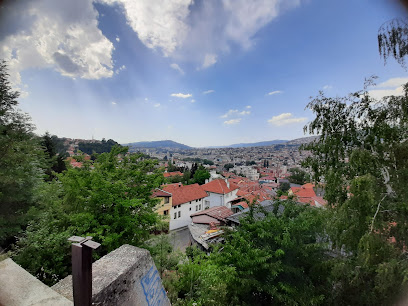
White Fortress
Explore Sarajevo's White Fortress: A historic landmark with stunning panoramic views of the city and a glimpse into its rich past.
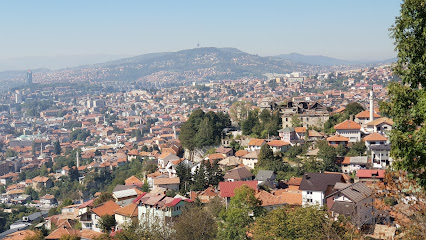
Orthodox Church of the Nativity of the Theotokos
Discover Sarajevo's Orthodox Church of the Nativity of the Theotokos: A stunning blend of Byzantine and Serbian architecture with rich historical significance.
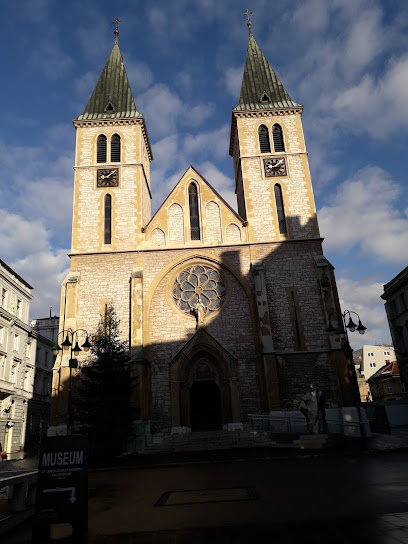
Ferhadija Mosque
Discover Sarajevo's Ottoman gem: The Ferhadija Mosque, a symbol of resilience and architectural beauty in the heart of the city.
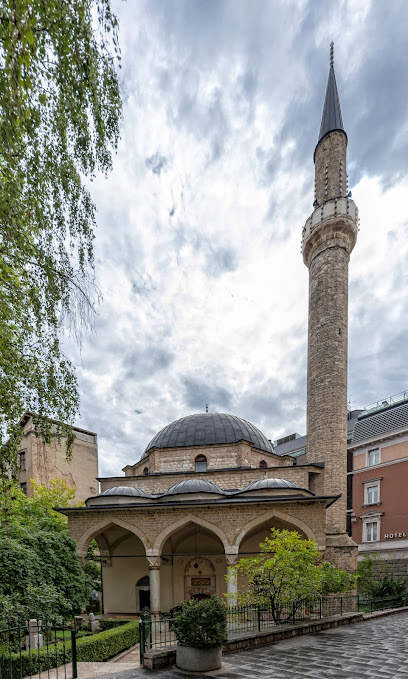
Tašlihan
Explore the ruins of Tašlihan in Sarajevo, a 16th-century caravanserai and national monument reflecting the city's Ottoman heritage.
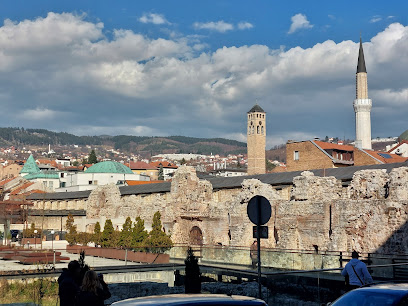
Clock Tower
A historic Ottoman-era clock tower in Sarajevo's Old Town, famous for its unique lunar timekeeping and architectural beauty.
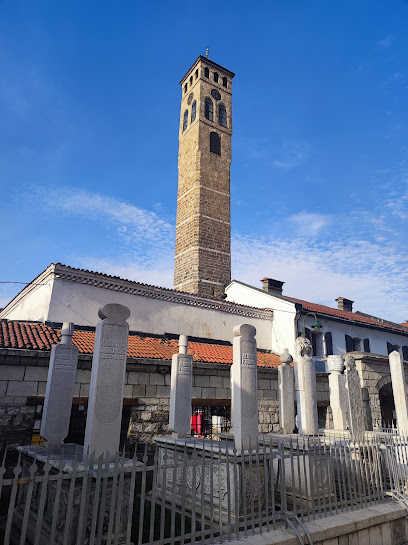
Sarajevo Meeting of Cultures
Experience the cultural crossroads of Sarajevo where East meets West on Ferhadija Street, a vibrant symbol of the city's diverse heritage.
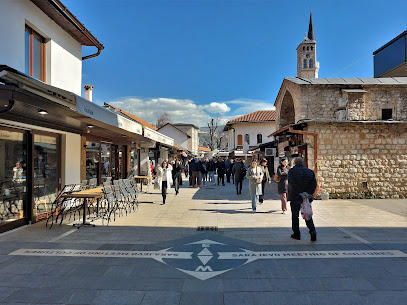
Location of Sarajevo Assassination
Visit the site where the shot heard 'round the world ignited World War I, forever changing the course of history, located in the heart of Sarajevo.
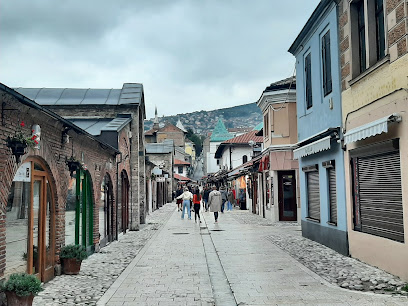
Ferhadija 2
Experience the heart of Sarajevo on Ferhadija Street, where Ottoman and Austro-Hungarian history meet vibrant modern culture.
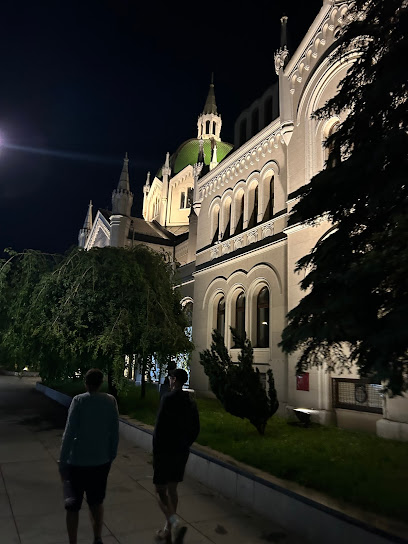
Mezarje u haremu džamije Ferhadija
Discover the serene beauty and cultural significance of Mezarje u haremu džamije Ferhadija, a historic cemetery in Sarajevo with rich Islamic heritage.

Unmissable attractions to see
Sarajevo City Hall
Discover the stunning Sarajevo City Hall, an architectural marvel and cultural hub highlighting the rich history of Bosnia and Herzegovina.
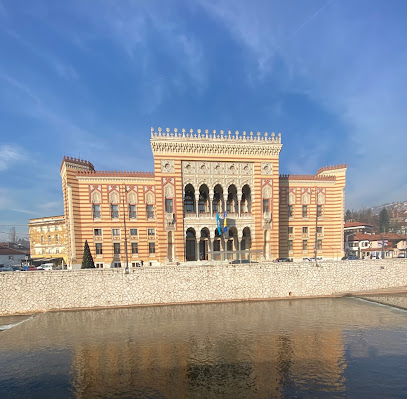
Yellow Fortress
Experience breathtaking views of Sarajevo from the historic Yellow Fortress, a cultural landmark rich in history and beauty.
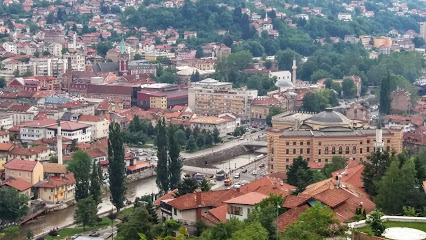
Gazi Husrev-beg Mosque
Discover the architectural splendor of Gazi Husrev-beg Mosque, a symbol of Sarajevo's rich cultural heritage and Ottoman legacy.
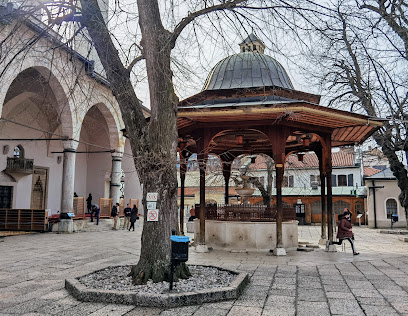
Ferhadija Mosque
Discover the stunning Ferhadija Mosque in Sarajevo, a historical masterpiece reflecting the rich cultural heritage of Bosnia and Herzegovina.
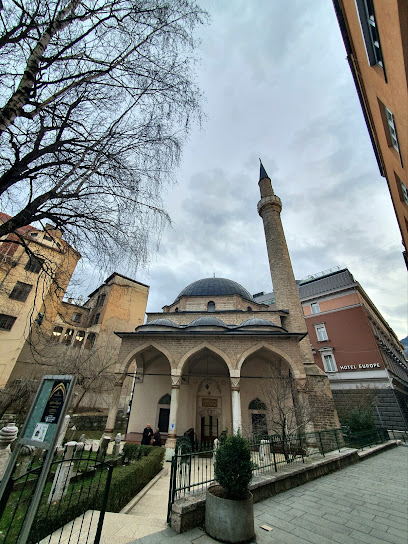
Ferhadija 2
Discover the vibrant cultural heartbeat of Sarajevo at Ferhadija 2, where history meets modern charm in a captivating atmosphere.
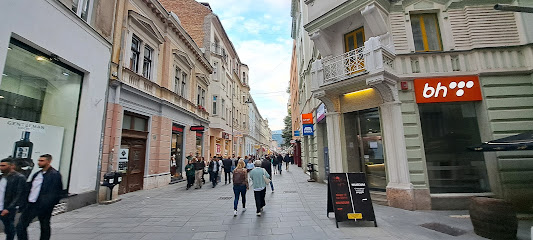
Essential places to dine
Klopa
Discover the flavors of Bosnia at Klopa, where fresh ingredients meet traditional recipes in the heart of Sarajevo.
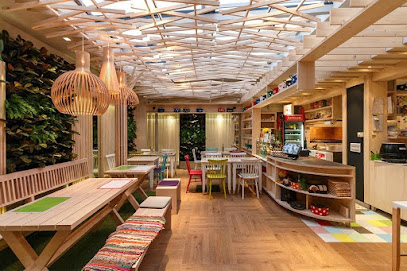
Vatra
Discover Vatra in Sarajevo: A premier destination for exquisite desserts and artisanal ice cream offerings.
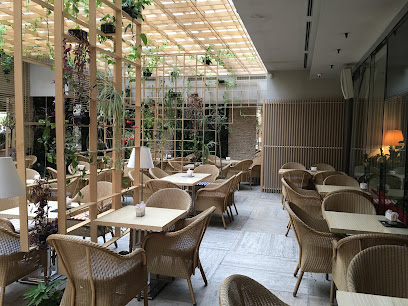
Ćevabdžinica Nune
Experience the best of Bosnian barbecue at Ćevabdžinica Nune - where tradition meets flavor in the heart of Sarajevo.
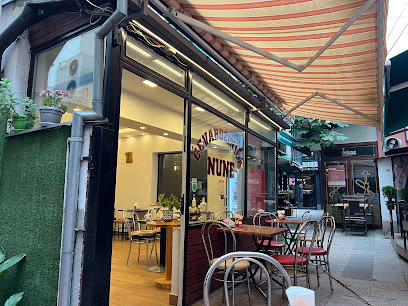
Revolucija 1764
Discover authentic Bosnian flavors at Revolucija 1764 in Sarajevo - where tradition meets contemporary culinary art.
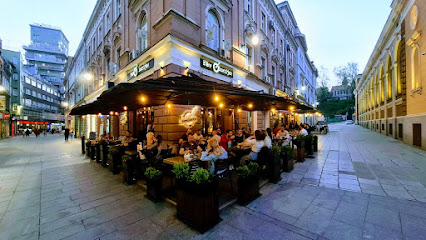
Gastro pub Fabrika
Experience Sarajevo's vibrant culinary scene at Gastro Pub Fabrika - where traditional flavors meet modern creativity in a lively setting.
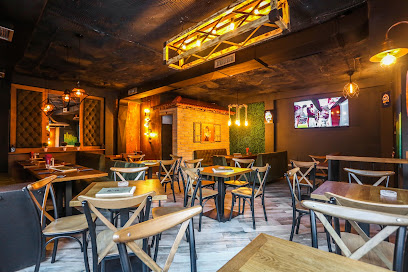
Sedef
Discover authentic Bosnian cuisine at Sedef, a charming restaurant in Sarajevo offering traditional dishes and warm hospitality.
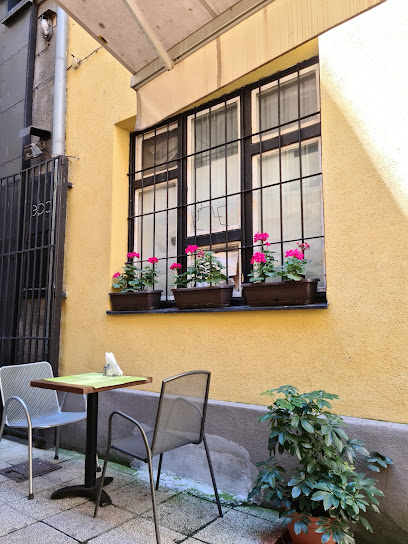
Merak Food
Experience delicious Bosnian pizza and fast food at Merak Food - where tradition meets convenience in the heart of Sarajevo.
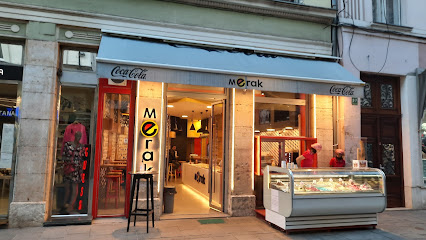
C'est La Vie
Discover the essence of Bosnian cuisine at C'est La Vie, where every meal tells a story in Sarajevo's vibrant culinary scene.
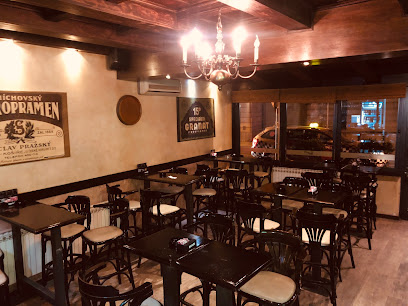
Pizzeria Dino
Experience authentic Italian cuisine at Pizzeria Dino in Sarajevo—where every bite feels like a journey through Italy's culinary landscape.
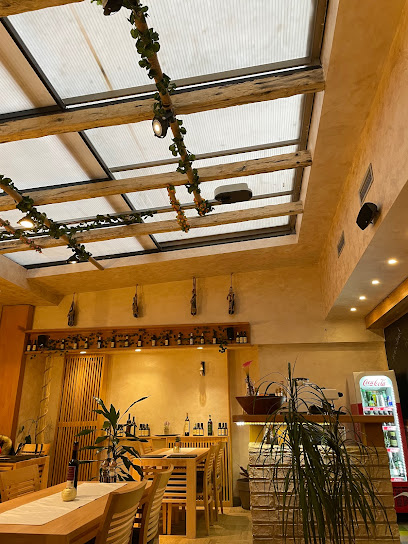
East Meets West - Apetit
Discover the perfect blend of Eastern and Western cuisines at East Meets West - Apetit in Sarajevo's vibrant culinary scene.
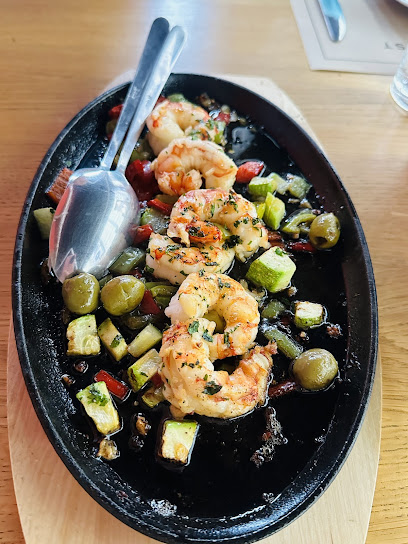
Markets, malls and hidden boutiques
SCC - Sarajevo City Center
Explore SCC - Sarajevo City Center: A premier shopping destination blending modern retail with local culture, dining, and entertainment.
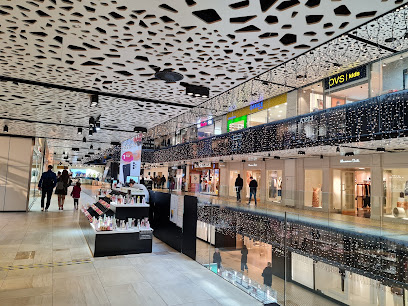
Alta Shopping Center
Experience Sarajevo's premier shopping destination, Alta Shopping Center, where local charm meets international flair in a vibrant atmosphere.
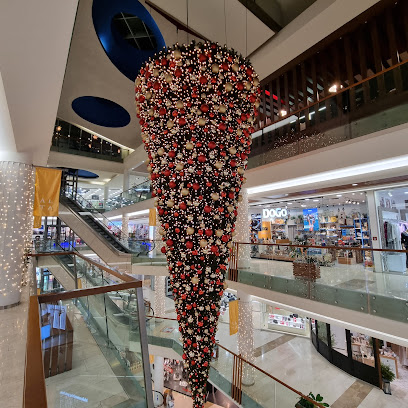
Importanne Shopping Centar
Explore Sarajevo's premier shopping destination with diverse stores, delightful dining, and a lively atmosphere at Importanne Shopping Centar.
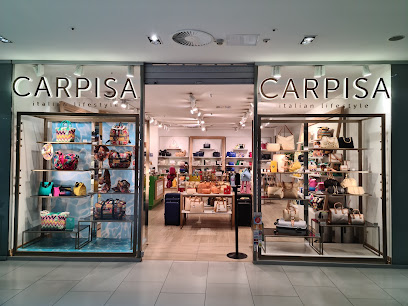
Magaza
Discover unique gifts and cultural treasures at Magaza, the must-visit gift shop in Sarajevo, blending tradition with music and art.
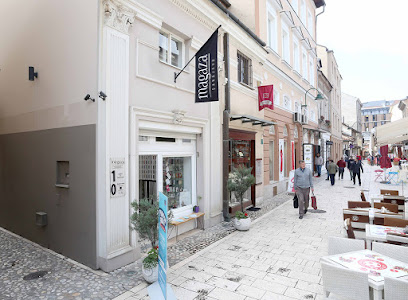
Bosnian Kingdom Shop
Discover authentic Bosnian clothing and traditional attire at the Bosnian Kingdom Shop in Sarajevo, a cultural treasure for every traveler.
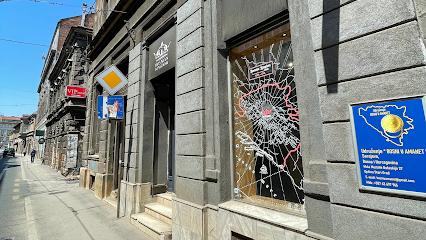
Bazerdžan Baščaršija | Concept Store, Fashion, Souvenir, Gift Shop
Discover unique gifts and local treasures at Bazerdžan Baščaršija, Sarajevo's charming concept store in the heart of the historic Baščaršija district.
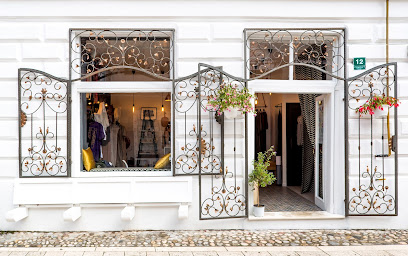
Sufi Textile
Explore the heart of Bosnian culture at Sufi Textile, where traditional craftsmanship meets contemporary charm.
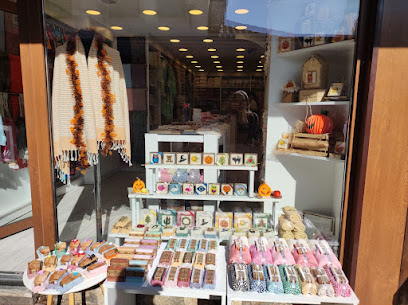
Gema
Discover Gema, Sarajevo's premier clothing store, where contemporary design meets traditional Bosnian fashion in a unique shopping experience.
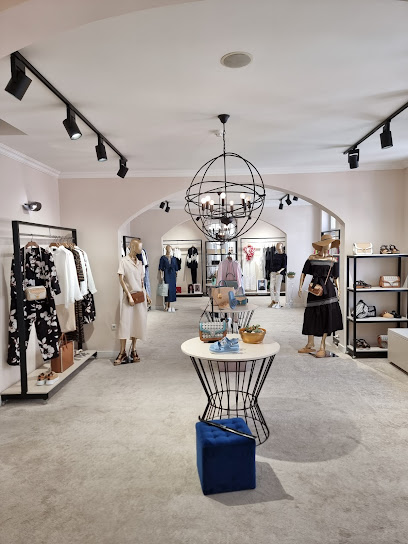
Prime Shop 360
Discover unique local crafts and international brands at Prime Shop 360, a must-visit shopping destination in Sarajevo for every traveler.
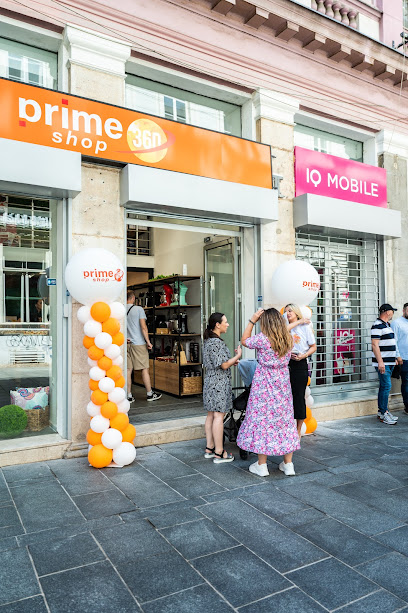
Unique Shop
Explore Sarajevo's Unique Shop for a blend of traditional and contemporary fashion, showcasing the vibrant culture and style of Bosnia.
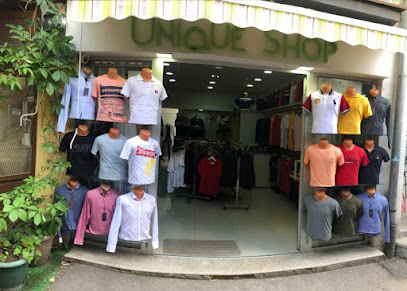
Essential bars & hidden hideouts
Tesla
Discover Tesla Pub in Sarajevo: A modern hub of local craft beer, vibrant atmosphere, and authentic Bosnian cuisine.
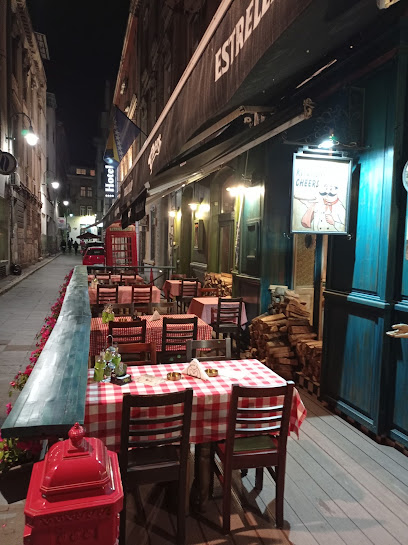
Celtic Pub
Discover the warmth of Bosnian hospitality at Celtic Pub, a lively spot in Sarajevo for local brews and delicious cuisine.
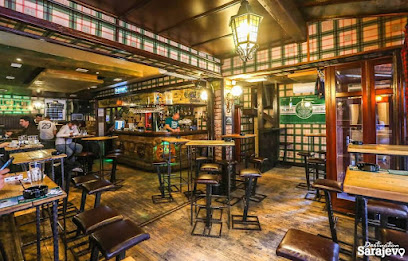
Zlatna ribica
Experience the vibrant ambiance and eclectic offerings of Zlatna ribica, a unique bar and café in the heart of Sarajevo.
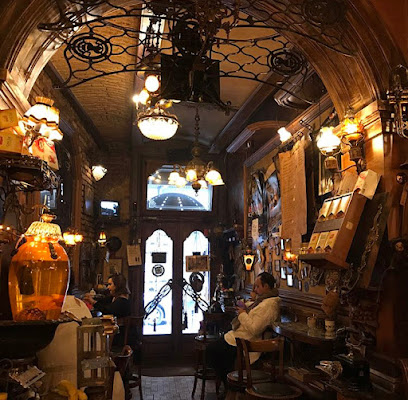
Gastro pub Fabrika
Discover the vibrant flavors of Sarajevo at Gastro Pub Fabrika, where traditional cuisine meets modern gastronomy in a lively setting.
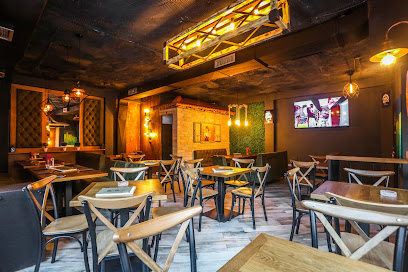
Deco Bar
Experience the vibrant nightlife of Sarajevo at Deco Bar, where modern cocktails meet traditional charm in an inviting atmosphere.
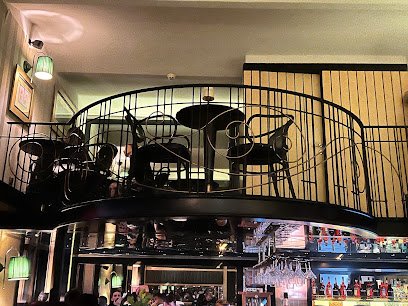
Sophie’s Garden
Discover the charm of Sophie’s Garden, a serene bar and café in Sarajevo, offering refreshing drinks and a picturesque garden atmosphere.
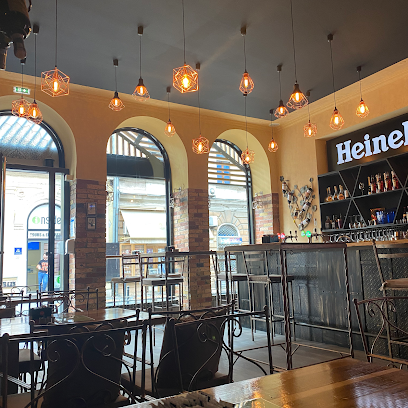
La Cava Sarajevo
Discover the exquisite flavors of Bosnia at La Cava Sarajevo, a charming wine bar offering a curated selection of local and international wines.
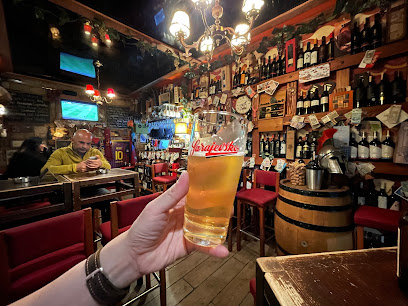
Dilema PUB
Experience the vibrant atmosphere and local culture at Dilema PUB, Sarajevo's favorite bar for relaxation and socializing.
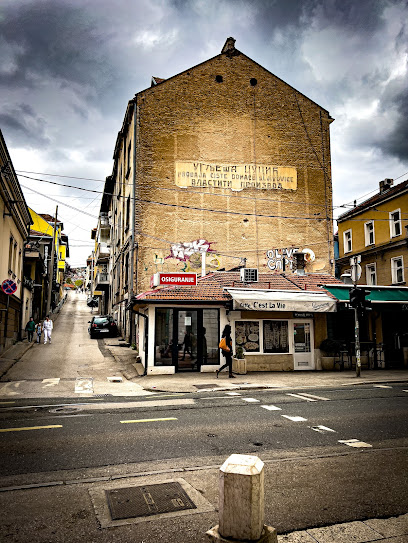
Shisha Bar - Slatki Miris
Discover the vibrant atmosphere of Shisha Bar - Slatki Miris, where tradition meets modernity in the heart of Sarajevo, perfect for relaxation and local culture.
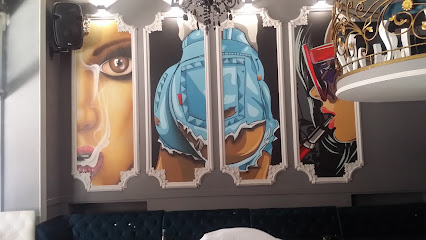
Lounge Bar
Experience Sarajevo's vibrant nightlife at the Lounge Bar, offering a delightful selection of drinks and a cozy atmosphere for all visitors.

Local Phrases
-
- HelloZdravo
[Zdrah-voh] - GoodbyeDoviđenja
[Doh-vee-jen-ya] - YesDa
[Dah] - NoNe
[Neh] - Please/You're welcomeMolim/ Nema na čemu
[Moh-leem/ Neh-mah nah cheh-moo] - Thank youHvala
[Hvah-lah] - Excuse me/SorryIzvini
[Eez-vee-nee] - How are you?Kako si?
[Kah-koh see?] - Fine. And you?Dobro. A ti?
[Doh-bro. Ah tee?] - Do you speak English?Govoriš li engleski?
[Goh-voh-reesh lee ehn-gleh-skee?] - I don't understandNe razumijem
[Neh rah-zoo-mee-yem]
- HelloZdravo
-
- I'd like to see the menu, pleaseMogu li vidjeti meni, molim
[Moh-goo lee vee-dyeh-tee meh-nee, moh-leem] - I don't eat meatNe jedem meso
[Neh yeh-dem meh-so] - Cheers!Živjeli!
[Zhee-vyeh-lee] - I would like to pay, pleaseŽelim platiti, molim
[Zheh-leem plah-tee-tee, moh-leem]
- I'd like to see the menu, pleaseMogu li vidjeti meni, molim
-
- Help!Pomoć!
[Poh-mohtch!] - Go away!Idi odavde!
[Ee-dee oh-dahv-deh!] - Call the Police!Pozovi policiju!
[Poh-zoh-vee poh-lee-tsee-yoo!] - Call a doctor!Pozovi doktora!
[Poh-zoh-vee daw-ktoh-rah!] - I'm lostIzgubio/la sam se
[Eez-goo-bee-oh/la sahm seh] - I'm illBolestan/sna sam
[Boh-leh-stahn/snah sahm]
- Help!Pomoć!
-
- I'd like to buy...Želim kupiti...
[Zheh-leem koo-pee-tee] - I'm just lookingSamo gledam
[Sah-moh gleh-dahm] - How much is it?Koliko košta?
[Koh-lee-koh koh-shta?] - That's too expensiveTo je pre skupo
[Toh yeh preh skoo-poh] - Can you lower the price?Možete li spustiti cijenu?
[Moh-zheh-teh lee spoo-stee-tee tsee-yeh-noo?]
- I'd like to buy...Želim kupiti...
-
- What time is it?Koliko je sati?
[Koh-lee-koh yeh sah-tee?] - It's one o'clockJedan je sat
[Yeh-dahn yeh saht] - Half past (10)Pola (deset)
[Poh-lah (deh-set)] - MorningJutro
[Yoo-troh] - AfternoonPopodne
[Poh-pohd-neh] - EveningVeče
[Veh-cheh] - YesterdayJuče
[Yoo-cheh] - TodayDanas
[Dah-nahs] - TomorrowSutra
[Soo-trah] - 1Jedan
[Yeh-dahn] - 2Dva
[Dvah] - 3Tri
[Tree] - 4Četiri
[Cheh-tee-ree] - 5Pet
[Peh-t] - 6Šest
[Shehst] - 7Sedam
[Seh-dahm] - 8Osam
[Oh-sahm] - 9Devet
[Deh-veht] - 10Deset
[Deh-set]
- What time is it?Koliko je sati?
-
- Where's a/the...?Gdje je...
[Gdyeh yeh...] - What's the address?Koja je adresa?
[Koh-yah yeh ah-dreh-sah?] - Can you show me (on the map)?Možete li mi pokazati (na mapi)?
[Moh-zheh-teh lee mee poh-kah-zah-tee (nah mah-pee)?] - When's the next (bus)?Kada je sljedeći (autobus)?
[Kah-dah yeh sleh-deh-chee (ow-toh-boos)?] - A ticket (to ....)Jednu kartu (do ...)
[Yehd-noo kahr-too (doh ...)]
- Where's a/the...?Gdje je...
History of Ferhadija
-
Ferhadija, named after the Ferhad Pasha Mosque built in 1561, showcases the significant Ottoman influence on Sarajevo's urban landscape. The mosque became a central religious and cultural hub, symbolizing the integration of Islamic architecture into the city. Its construction marked the beginning of Ferhadija as a vital neighborhood, attracting merchants and residents alike.
-
During the 19th century, Ferhadija emerged as a bustling commercial center. The streets became lined with shops and markets, where traders from diverse backgrounds would gather. This vibrant atmosphere contributed to Sarajevo's economic growth and cultural exchange, as goods, ideas, and traditions flowed through the neighborhood.
-
The assassination of Archduke Franz Ferdinand in 1914, which took place near Ferhadija, ignited World War I. This event not only altered the course of European history but also had profound effects on Sarajevo and its neighborhoods. The subsequent years saw the decline of the Austro-Hungarian Empire, leading to significant changes in the political and social landscape of Ferhadija.
-
In the wake of World War II, Ferhadija underwent significant transformations as Yugoslavia was established. The neighborhood became a site of both resistance and adaptation, with various ethnic communities navigating the complexities of post-war life. The architectural landscape also evolved, reflecting the socialist ideals of the new regime.
-
During the Bosnian War in the early 1990s, Ferhadija was heavily affected by the siege of Sarajevo. The destruction of the historic Ferhad Pasha Mosque in 1993 was a significant loss for the community, symbolizing the broader cultural and historical losses suffered during the conflict. The war left deep scars on the neighborhood, affecting its population and infrastructure.
-
Following the war, efforts to rebuild Ferhadija began, reflecting the resilience of its inhabitants. The restoration of the Ferhad Pasha Mosque and other cultural sites became a priority, aiming to revive the neighborhood's historical character. Today, Ferhadija stands as a testament to the enduring spirit of Sarajevo, blending its rich history with contemporary life.
Ferhadija Essentials
-
Ferhadija is centrally located in Sarajevo, easily accessible from various parts of the city. From the Sarajevo International Airport, you can take a taxi or arrange for a shuttle service that will take you directly to Ferhadija. If you are coming from other neighborhoods, public transport options like trams and buses are available. Tram line 1 and several bus routes run close to Ferhadija, making it convenient to access from areas like Baščaršija and Marijin Dvor.
-
Ferhadija is primarily a pedestrian-friendly area, making walking the best way to explore its shops and cafes. Public transport within Sarajevo includes trams and buses, with stops conveniently located around Ferhadija. Taxis are also readily available, and rideshare services can be used for quick trips. For a unique experience, consider renting a bicycle to explore nearby neighborhoods and parks.
-
Ferhadija is generally safe for tourists, but as in any urban area, it is wise to remain vigilant. Avoid walking alone in poorly lit areas at night and keep your belongings secure. While there are no specific high-crime areas targeting tourists, be cautious in crowded places like markets where pickpocketing can occur.
-
In the event of an emergency, call 112 for immediate assistance. For medical emergencies, approach any local pharmacy or hospital. The nearest hospital is the University Clinical Center of Sarajevo. It's advisable to have travel insurance that covers emergencies. Keep a list of emergency contacts handy, including your country's embassy.
-
Fashion: Do dress modestly, especially when visiting religious sites. Avoid wearing revealing clothing. Religion: Do respect local customs and traditions. Always cover your head when entering mosques. Public Transport: Do be respectful and give up your seat to elderly passengers. Don't eat or drink on public transport. Greetings: Do greet people with a friendly 'Dobar dan' (Good day) and a handshake. Eating & Drinking: Do try local specialties, such as cevapi and baklava, and accept food offerings graciously. Don't refuse hospitality, as it can be seen as impolite.
-
To experience Ferhadija like a local, visit the numerous cafes and bakeries that line the street, where you can enjoy a cup of Bosnian coffee and watch the world go by. Engage with local vendors at the nearby markets and try to learn a few words of Bosnian to connect better with the locals. Also, consider visiting nearby attractions like the Sacred Heart Cathedral and the Gazi Husrev-beg Mosque, both rich in history and architectural beauty.
Nearby Cities to Ferhadija
-
Things To Do in Zenica
-
Things To Do in Mostar
-
Things To Do in Tuzla
-
Things To Do in Jajce
-
Things To Do in Nikšić
-
Things To Do in Trebinje
-
Things To Do in Makarska
-
Things To Do in Dubrovnik
-
Things To Do in Banja Luka
-
Things To Do in Perast
-
Things To Do in Herceg Novi
-
Things To Do in Tivat
-
Things To Do in Kotor
-
Things To Do in Hvar
-
Things To Do in Split








